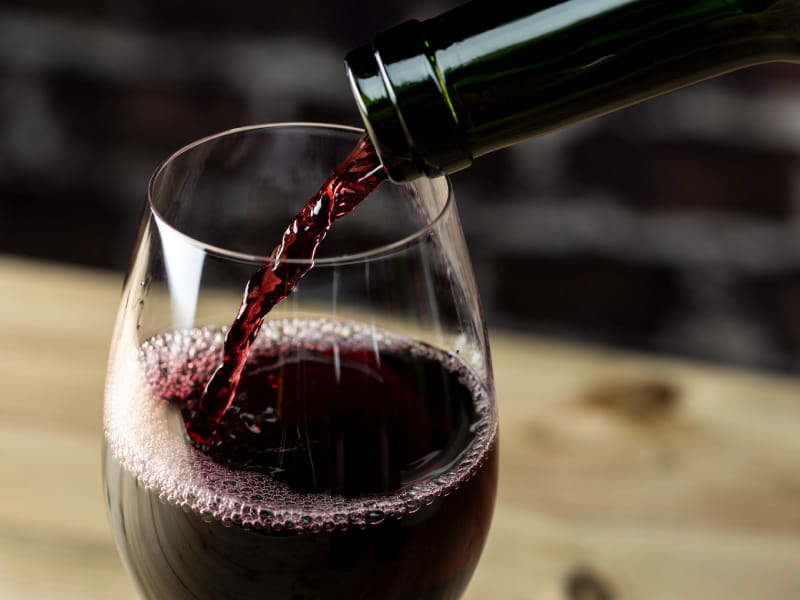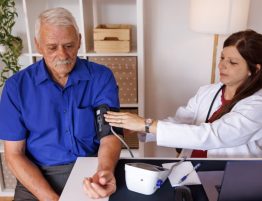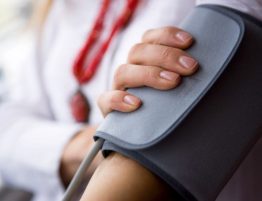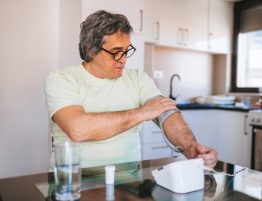
Drinking alcoholic beverages on a regular basis – even if it’s just one drink per day – may raise blood pressure levels as you age, a new research analysis suggests.
The study, published Monday in the American Heart Association journal Hypertension, found people who routinely drank even small amounts of alcohol saw blood pressure measurements rise more than those who drank none at all. The analysis examined data from seven studies in the U.S., Korea and Japan.
“We were somewhat surprised to see that consuming an already-low level of alcohol was also linked to higher blood pressure changes over time compared to no consumption – although far less than the blood pressure increase seen in heavy drinkers,” Dr. Marco Vinceti, the study’s senior author, said in a news release. Vinceti is a professor of epidemiology and public health in the Medical School of the University of Modena and Reggio Emilia University in Italy and an adjunct professor in the department of epidemiology at Boston University’s School of Public Health.
High blood pressure, or hypertension, is an important – yet preventable – risk factor for cardiovascular disease. Nearly half of U.S. adults have high blood pressure, but because there are often no symptoms, many don’t know they have it unless they’re checking for it.
Prior research shows a link between alcoholic beverage consumption and blood pressure levels. But the relationship between drinking small amounts of alcohol on a regular basis and blood pressure levels was unclear. The AHA recommends that people who drink alcoholic beverages limit consumption to two drinks per day for men and one for women. One drink is the equivalent of 12 ounces of regular beer, five ounces of wine or 1.5 ounces of 80-proof liquor. The AHA also encourages those who don’t already drink alcohol not to start.
The new analysis looked at health data for 19,548 adults in the U.S., Korea and Japan, finding a continual rise in blood pressure measurements over a follow-up period of four to 12 years, whether people had low or high consumption of alcohol. The participants ranged in age from 20 to their early 70s, and none had high blood pressure at the beginning of the study period.
Comparing people who drank alcohol regularly with those who never drank, researchers found measurements for both systolic (top number) and diastolic (bottom number) blood pressure rose more in people who drank. The systolic reflects pressure when the heart beats. The diastolic reflects pressure in the blood vessels between beats, when the heart is at rest.
In people who drank an average of 12 grams of alcohol per day – equivalent to slightly less than one standard alcoholic drink in the U.S. – systolic blood pressure rose 1.25 mmHg over five years. In people who drank an average of 48 grams of alcohol per day, systolic blood pressure rose 4.9 mmHg over the study period.
Diastolic blood pressure rose 1.14 mmHg over the study period in men who drank an average 12 grams of alcohol per day and 3.1 mmHg in men who drank an average 48 grams of alcohol per day. Diastolic blood pressure changes were not associated with alcoholic beverage consumption in women. Diastolic blood pressure measurements are not considered as strong a predictor of cardiovascular disease as systolic measurements.
Researchers said their analysis was based on grams of alcohol consumed and not just on the number of drinks because they wanted to avoid the bias that might arise from the different amount of alcohol contained in “standard drinks” across countries and types of beverages.
“Alcohol is certainly not the sole driver of increases in blood pressure; however, our findings confirm it contributes in a meaningful way,” Vinceti said. “Limiting alcohol intake is advised, and avoiding it is even better.”







